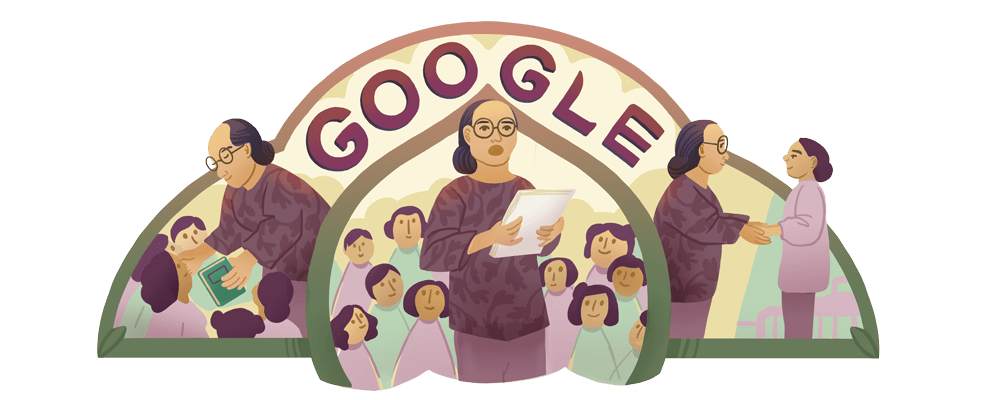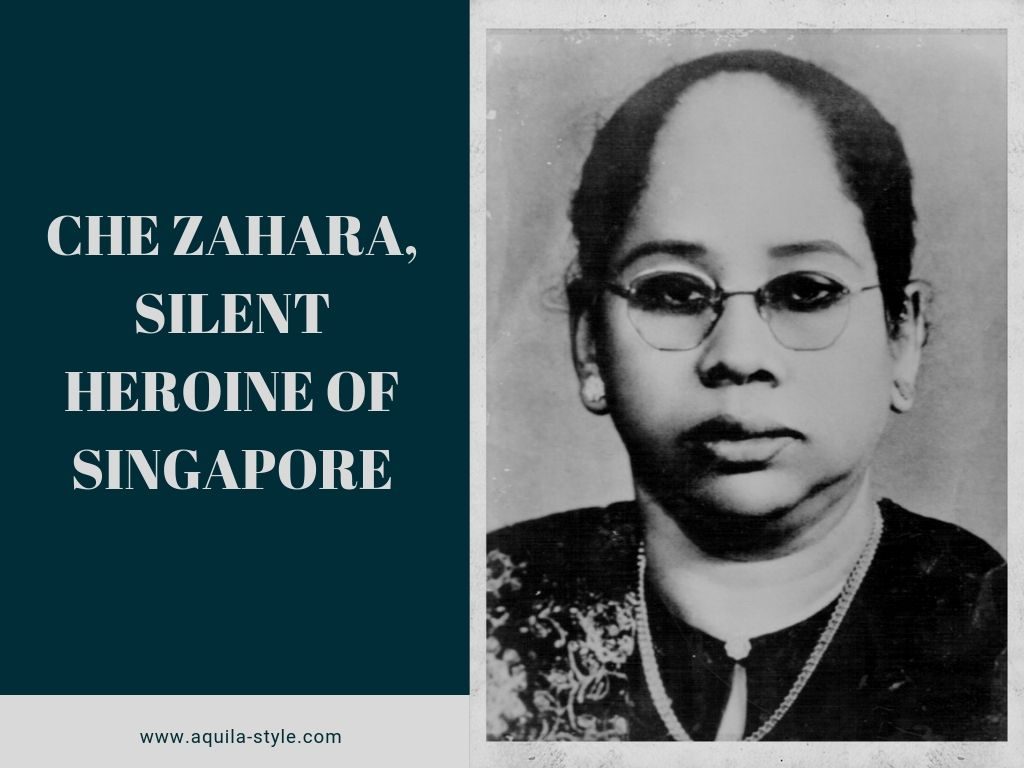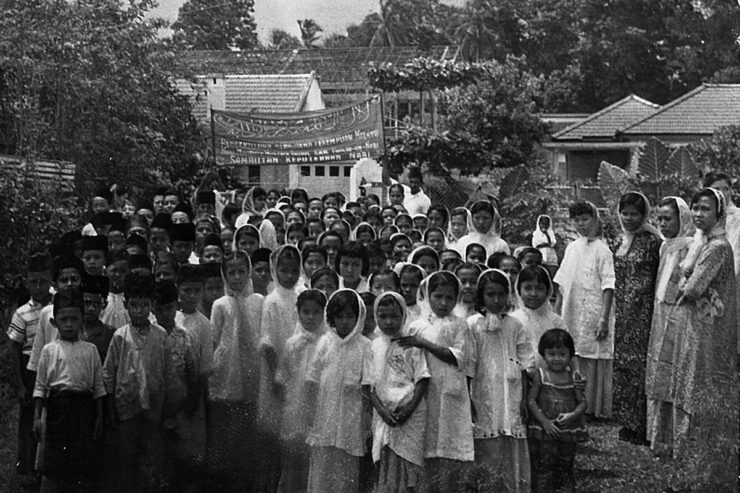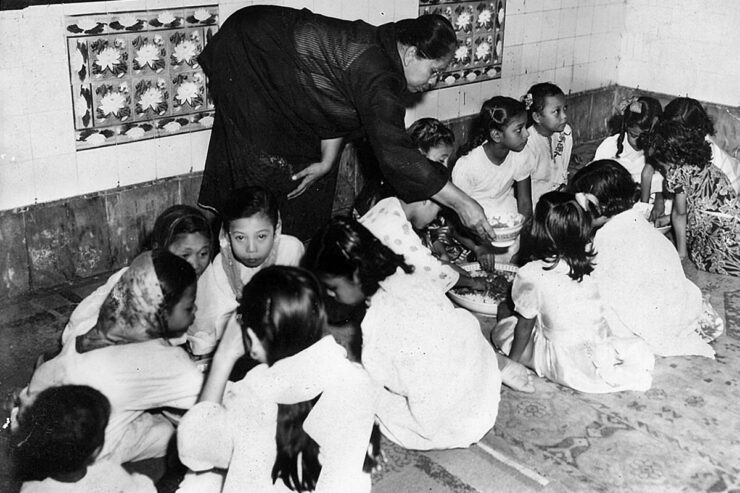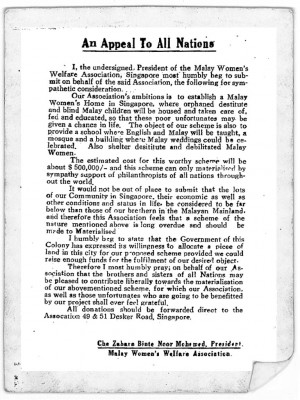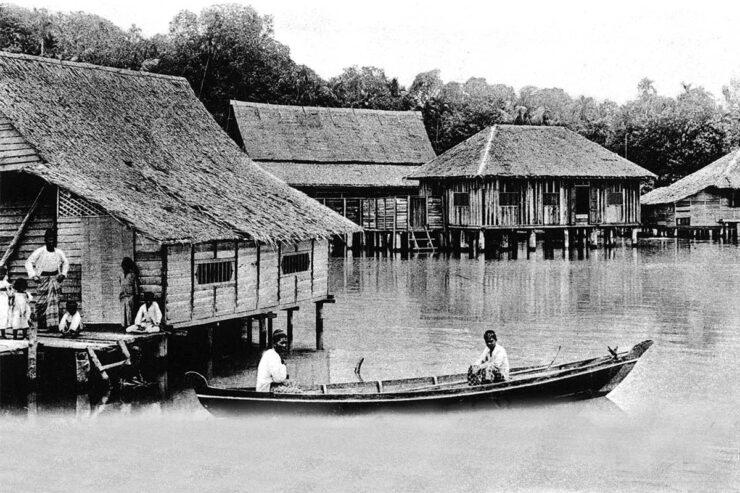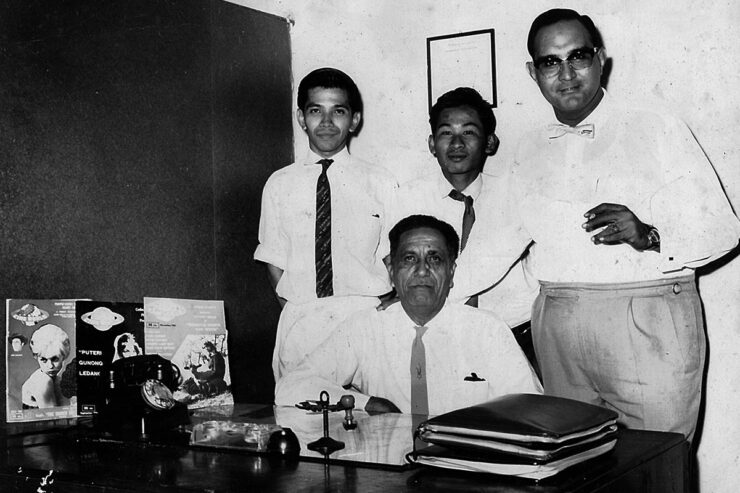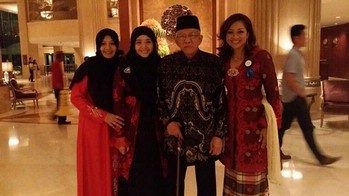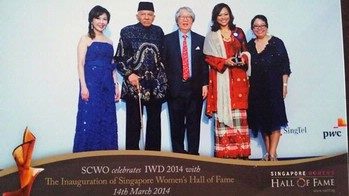Today’s Doodle celebrates Singaporean activist Che Zahara binte Noor Mohamed, a lifelong champion of women’s and children’s rights who founded Singapore’s first Muslim women’s welfare organization—the Malay Women’s Welfare Association (MWWA). In protest of restrictive measures instituted by the 1950 Marriage Bill, Che Zahara held a large rally on this day in 1950 that achieved significant progress for women’s rights across the country.
Che Zahara binte Noor Mohamed was born in 1907 in Singapore. She married a businessman deeply involved in social welfare. He encouraged her to pursue a career advocating for economically challenged women and orphaned children.
In the aftermath of World War II, many children and women were left without homes, so Che Zahara opened her home to provide them with shelter, education, and basic care. She requested a $500,000 donation from the government in an appeal that led to the establishment of the MWWA at her home in 1947. Known for her unyielding determination to help those in need, she earned the nickname “Che Zahara Kaum Ibu,” which loosely translates to “Che Zahara who protected women and children.”
Che Zahara’s lifelong work was built upon the belief that education could empower people and lift them out of poverty. She educated hundreds of women and orphans from all walks of life. In 1961, she helped pass the Women’s Charter of Singapore, a legislative landmark that continues to protect the rights of Singaporean women and girls to this day.
Here’s to you, Che Zahara binte Noor Mohamed!
Source:: google.com
[...]





